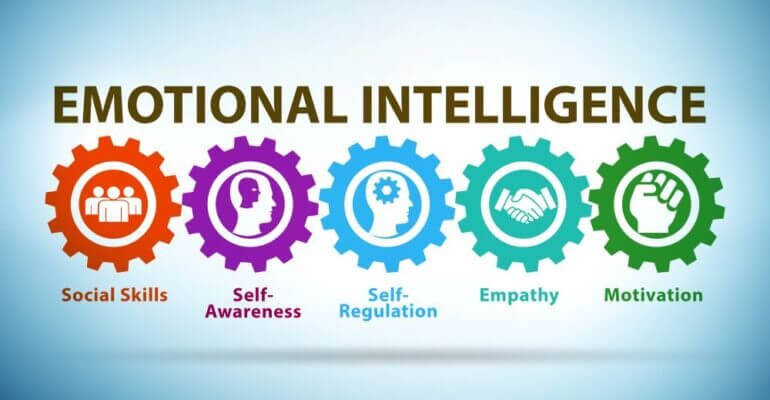Understanding the Bigger Picture: Why Emotional Intelligence (EQ) Is More Valuable Than IQ
Are you looking to develop the skillset necessary for success in life? What if we told you that the key to success might not be related to intelligence, but rather, something a bit more abstract – emotional intelligence? This blog article dives into why EQ is more valuable than IQ, and why researchers are starting to pay more attention to it. Get ready – it’s time to explore the bigger picture!

Introduction to Emotional Intelligence (EQ)
EQ, or emotional intelligence, is the capacity to be aware of and manage one’s own emotions, and the emotions of others. It is a critical skill in both personal and professional settings.
Why is EQ more valuable than IQ? Because IQ only measures cognitive ability, while EQ measures both cognitive and emotional abilities. And studies have shown that EQ is a better predictor of success than IQ.
Individuals with high EQs are able to harness their emotions and use them in constructive ways. They’re better at problem-solving, decision-making, and managing relationships. They’re also more resilient in the face of stress and setbacks.
So if you want to be successful in life, start working on your EQ!

Comparing EQ to IQ: What Experts Say
When it comes to intelligence, there are two different types that are often discussed: emotional intelligence (EQ) and IQ. So, which is more important?
Experts say that EQ is actually more valuable than IQ. Here’s why:
- Emotional intelligence can be learned, while IQ cannot.
- Emotional intelligence leads to better decision-making skills.
- Emotional intelligence allows for better self-awareness.
- Emotional intelligence contributes to a better understanding of others.
- Emotional intelligence results in stronger relationships.
- Emotional intelligence fosters better stress management skills.
The Power of Self-Awareness, Empathy, and Social Skills
It is often said that emotional intelligence (EQ) is more important than IQ. This may be because people with high EQ have the ability to be self-aware, understand and empathize with others, and possess strong social skills.
Self-awareness is the foundation of emotional intelligence. It refers to the ability to be aware of and understand one’s own emotions. People who are self-aware know their strengths and weaknesses, and they are able to manage their emotions effectively.
Empathy is another important aspect of emotional intelligence. Empathy refers to the ability to understand and share the feelings of others. People who are empathetic are able to see things from another person’s perspective and build strong relationships with others.
Finally, social skills are also vital for those who want to be successful in life. Social skills involve the ability to communicate effectively, build relationships, and navigate social interactions. People who have strong social skills are typically better at networking, making friends, and influencing others.
![]()
Benefits of High Emotional Intelligence
Individuals with high emotional intelligence are typically able to effectively navigate through life’s challenges and relationships. Studies have shown that there are several key benefits associated with having high emotional intelligence including:
- Improved self-awareness
- Better collaborative skills
- Stronger abilities to resolve conflicts
- Increased empathy
- Greater job satisfaction and career success
Key Strategies for Increasing Your EQ
If you’re looking to increase your emotional intelligence (EQ), there are key strategies that can help. EQ is the ability to be aware and understand your own emotions and the emotions of others. It’s about being able to regulate your emotions, respond effectively to emotions in others, and create positive relationships.
Here are five key strategies for increasing your EQ:
- Be Aware of Your Emotions
The first step to managing your emotions is being aware of them. Pay attention to how you’re feeling and why. If you can identify your emotions, you can better manage them.
- Manage Your Emotions
Once you’re aware of your emotions, it’s important to learn how to manage them. This means understanding what triggers your emotions and finding healthy ways to cope with them. This could involve things like deep breathing exercises, journaling, or talking to a trusted friend or therapist.
- Be Mindful of Your Thoughts
Your thoughts play a big role in how you feel emotionally. If you find yourself thinking negative thoughts, challenge them and reframe them in a more positive light. For example, instead of thinking “I’m such a failure,” tell yourself “I made a mistake but I’ll learn from it and do better next time.”
- Communicate Effectively
One way to improve your EQ is to communicate effectively. Assertiveness communication is a healthier way to communicate effectively. Any one can learn this skill.
Conclusion
In today’s day and age, emotional intelligence that has the ability to truly understand the bigger picture is more valuable than ever. People who have greater EQ are better at making decisions, solving problems, and relating with others in an equitable manner. They have an understanding of their own emotions as well as those around them which leads to fruitful relationships and successful outcomes. Developing your EQ seems like a great way to improve not only yourself but also those around you—something everyone can benefit from!

